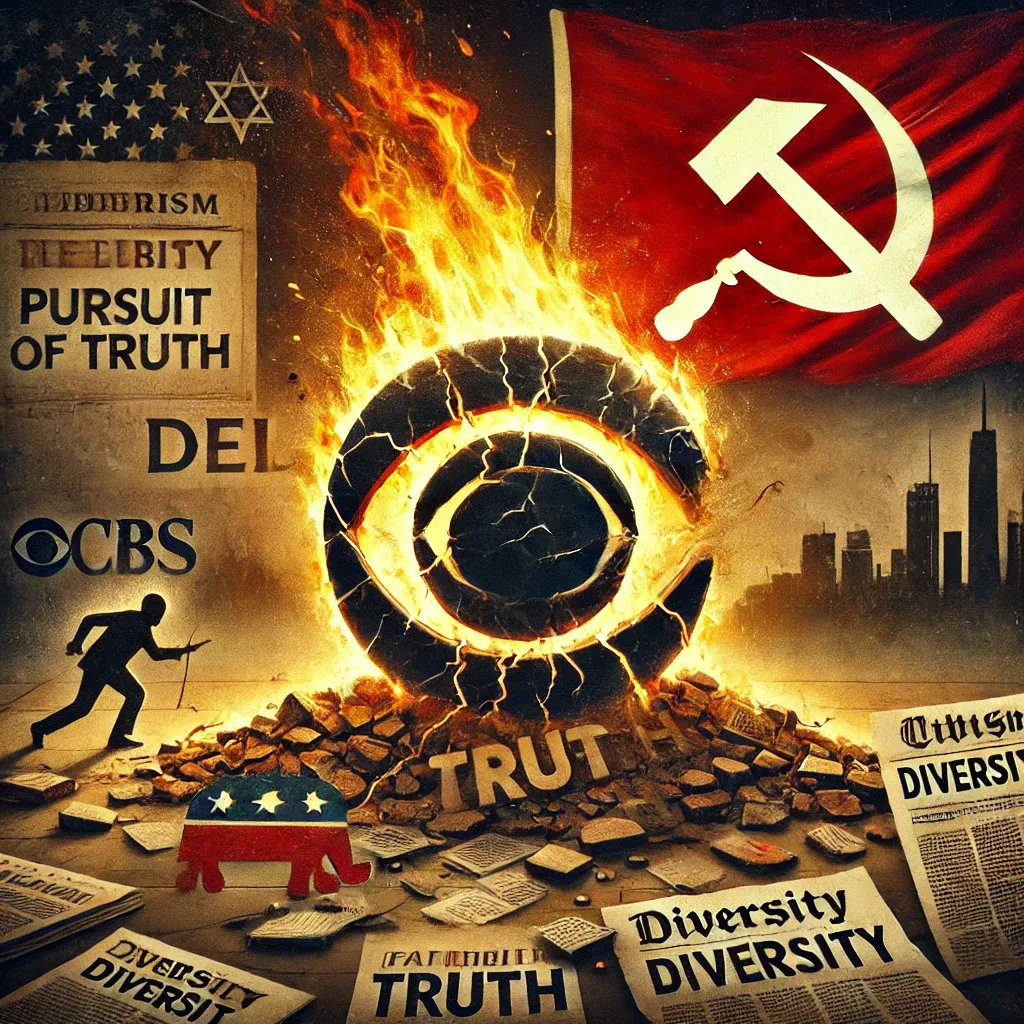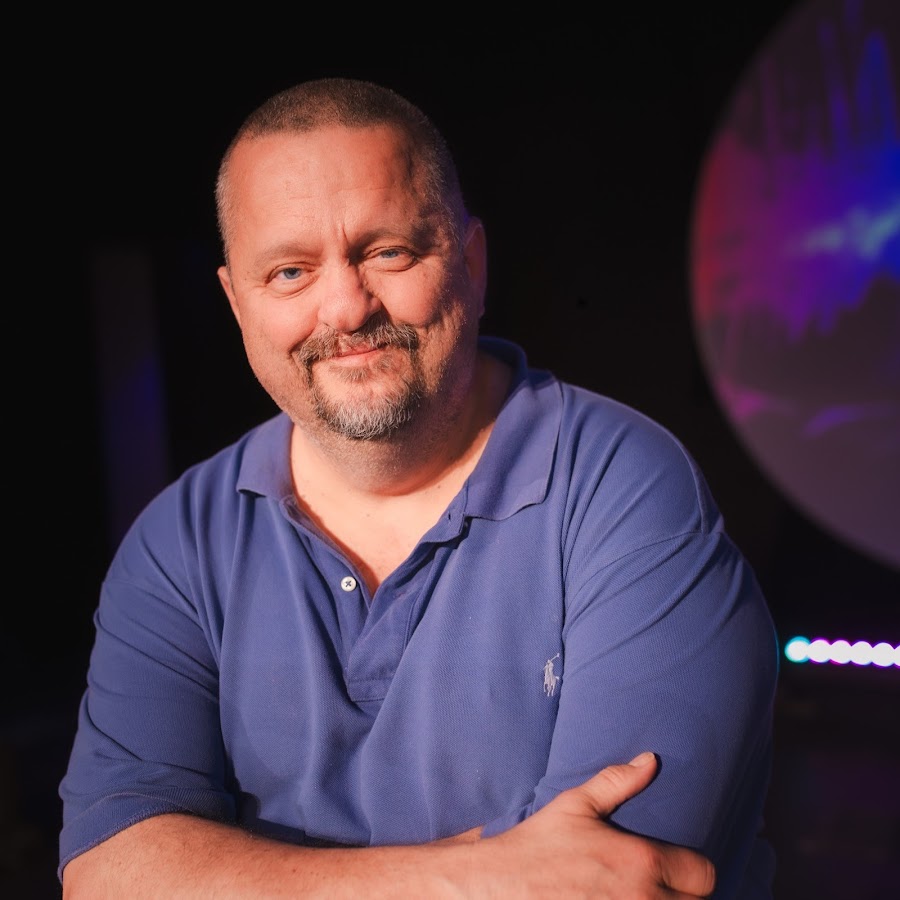

By Dr. Tim Orr
In the 1970s, American universities underwent a profound shift that fundamentally altered the purpose of higher education. Once grounded in veritas—the discovery of objective truth—many institutions pivoted toward a new mission: social change through a Marxist lens. This shift marked the beginning of a transformation in academic disciplines, especially the social sciences, where the goal became not to understand the world but to reshape it according to ideological principles. Christian Smith's The Sacred Project of American Sociology captures this transformation, arguing that sociology (and, by extension, much of academia) became a “sacred project” dedicated to progressive social change, no longer an impartial search for truth. This ideological shift has had far-reaching consequences, including how journalists and media executives are trained, leading to the worldview displayed at CBS in handling the controversial interview with Ta-Nehisi Coates, an American author and journalist known for his writings on race and culture.
The CBS debacle is emblematic of how decades of academic training shaped by Marxist ideology and the DEI (Diversity, Equity, and Inclusion) agenda have created a media environment that prioritizes certain narratives—often at the expense of truth, balance, and fairness. The result is not just a breakdown in journalistic integrity but a dangerous trend toward the normalization of antisemitism and ideological conformity.
This ideological shift, where media institutions prioritize narratives of oppression and colonialism, often leads to Jew hatred by framing Israel as a "colonial oppressor" within a simplistic oppressor-victim binary. By viewing the Israeli-Palestinian conflict solely through this racialized lens, the Jewish people’s right to a homeland is cast as inherently unjust, ignoring centuries of Jewish persecution and the legitimate security concerns of Israel. This reductionist perspective, reinforced by DEI frameworks and the influence of Marxist-inspired academic training, transforms legitimate political debate into antisemitism, where Jews and Israel are demonized as symbols of oppression, fueling global antisemitic sentiment.
The Shift in Academia: From Truth to Social Change
In the years following the 1970s, many American universities abandoned their traditional mission of pursuing objective truth in favor of promoting Marxist views of social change. Under this new framework, the aim was no longer to study society objectively but to challenge and deconstruct the existing social order, particularly through the lens of power, race, class, and gender. The Sacred Project of American Sociology argues that sociology—and, by extension, much of academia—ceased to be a neutral field of inquiry and became a tool for moral and political activism.
This “sacred project” was imbued with a quasi-religious sense of purpose. Universities became spaces where ideological commitments to equality, anti-racism, and gender liberation were not just goals but moral imperatives. Objectivity became secondary to the perceived righteousness of the cause, and those who questioned the emerging orthodoxy were marginalized. This shift from veritas to activism set the stage for a new generation of journalists and executives trained not to seek truth but to advocate for social change.
Training Journalists and Executives: Ideology Over Objectivity
These academic trends have deeply influenced journalism, once considered the pursuit of truth in reporting. The training journalists receive today reflects this shift, instilling in them the belief that their role is not simply to report the facts but to challenge systems of oppression and inequality. As a result, many journalists now see their profession through the same lens of oppressor vs. oppressed, a hallmark of Marxist thought.
Executives in media companies, who are often products of the same academic environment, reinforce these ideas. They lead organizations that prioritize narratives of social justice and racial equity, even at the expense of balanced reporting. This mindset has permeated newsrooms and editorial boards, resulting in a media culture that rewards ideological conformity while suppressing dissenting viewpoints.
The controversy surrounding Ta-Nehisi Coates’ CBS interview is a prime example of this ideological shift in action. Coates, known for his works on racial issues, extended his framework to the Israeli-Palestinian conflict, casting Israel as the colonial oppressor and Palestinians as the oppressed. His one-sided portrayal ignored Israel’s historical context, its security needs, and the decades of violence perpetrated by terrorist groups against Israeli civilians.
When CBS host Tony Dokoupil attempted to provide a more balanced perspective by pointing out the reality of terrorist attacks and Israel’s right to defend itself, he was met with backlash—not just from Coates but from CBS executives. Rather than supporting Dokoupil’s effort to introduce necessary context, the network’s leadership apologized to the staff, condemning Dokoupil for daring to challenge Coates’ narrative. This incident underscores how ideological conformity has replaced objectivity at CBS, a direct result of the academic and professional training prioritizing social justice over truth.
Become a Paid Member
The DEI Agenda: Fostering Conformity, Not Diversity
The dominance of the DEI agenda within media institutions like CBS further exacerbates this problem. In theory, DEI programs aim to foster diversity of thought and representation. However, in practice, they often promote ideological conformity under the guise of inclusion. DEI has become a mechanism for enforcing a particular worldview—one that aligns with progressive social justice causes—while marginalizing dissenting opinions.
At CBS, this agenda was on full display during the fallout from the Coates interview. Instead of addressing the legitimate concerns of Dokoupil, executives focused on appeasing those who were upset by his challenge to Coates’ one-sided narrative. CBS even considered bringing in Dr. Donald Grant, a DEI “expert” and trauma specialist, to mediate the internal conflict. However, Grant’s history of inflammatory posts—including derogatory comments about Black conservatives like Senator Tim Scott—only highlighted the absurdity of CBS’s approach.
Rather than encouraging open debate and the exchange of diverse perspectives, the DEI agenda at CBS was being used to reinforce a narrow, ideologically driven narrative. This approach not only stifles genuine diversity of thought but also contributes to the normalization of antisemitism. In the case of the Israeli-Palestinian conflict, the DEI framework often casts Israel as a colonial power, ignoring the unique historical and security challenges faced by the Jewish state. This simplistic and reductionist view of Israel fuels antisemitic rhetoric by framing the Jewish people’s right to a homeland as inherently unjust.
Prioritizing Antisemitic Narratives
One of the most troubling aspects of the CBS controversy is how it reflects the broader trend of prioritizing antisemitic narratives in media and academia. By allowing Coates to present a racially charged and one-sided view of the Israeli-Palestinian conflict without significant challenge, CBS signaled that antisemitic perspectives are not only tolerated but preferred. This is part of a larger cultural shift, where progressive institutions increasingly view Israel through the lens of white supremacy and colonialism, even though Jews have been historically oppressed, and Israel exists as a refuge for people who have faced centuries of persecution.
This trend is dangerous because it conflates legitimate criticism of Israeli policy with antisemitism, often leading to the delegitimization of Israel’s very right to exist. When media outlets like CBS prioritize these narratives, they contribute to a growing wave of antisemitism globally, particularly in progressive circles where Israel is viewed as a symbol of oppression. By framing the Israeli-Palestinian conflict purely in terms of race and colonialism, these narratives erase the complexity of the situation and fuel dangerous stereotypes about Jews.
How the Marxist Sacred Project of Academia Shapes the Media
The ideological commitments that began in academia are now fully entrenched in media institutions like CBS. The sacred project of sociology and other social sciences has influenced how journalists and executives view their roles—not as truth-tellers but as advocates for social change. This shift has transformed the media into a battleground where certain narratives, particularly those aligned with progressive causes, are elevated while others are silenced.
At CBS, this ideological commitment was evident in how the network handled the Coates interview. Instead of fostering a balanced discussion about a complex geopolitical issue, CBS prioritized a narrative that cast Israel as the villain. This is the direct result of a media culture shaped by decades of academic training that values social justice over objectivity, and it has led to the dangerous normalization of antisemitic views.
Conclusion: The Path Forward for Journalism
The CBS meltdown over the Coates interview is a symptom of a much larger problem within the media industry. Decades of ideological training in academia have led to a media culture that prioritizes certain narratives—particularly those that align with progressive social justice causes—at the expense of truth. As implemented in many institutions, the DEI agenda has become a tool for enforcing conformity rather than fostering true diversity of thought.
If media outlets like CBS are to regain the trust of their audiences, they must return to their original purpose: the pursuit of truth. This means embracing complexity, fostering balanced discussions, and resisting the urge to reduce every issue to simplistic binaries of oppressor vs. oppressed. The path forward for journalism is not more DEI consultants or ideological training but a renewed commitment to the principles of objectivity, fairness, and truth that once defined the profession.
In doing so, media institutions can avoid the dangerous path of normalizing antisemitism and ensure that they serve the public with integrity and honesty rather than acting as advocates for a narrow, ideological agenda.
Reference
Kelly, M. (2024, October 10). CBS News melting down over somewhat challenging interview with Ta-Nehisi Coates [Video]. YouTube. https://www.youtube.com/watch?v=g1LGbtPbV_Q
Smith, C. (2014). The sacred project of American sociology. Oxford University Press.
Tim Orr is a scholar, Evangelical minister, conference speaker, and interfaith consultant with over 30 years of experience in cross-cultural ministry. He holds six degrees, including a master’s in Islamic studies from the Islamic College in London. Tim taught Religious Studies for 15 years at Indiana University Columbus and is now a Congregations and Polarization Project research associate at the Center for the Study of Religion and American Culture at Indiana University Indianapolis. He has spoken at universities, including Oxford University, the University of Tehran, and mosques throughout the U.K. His research focuses on American Evangelicalism, Islamic antisemitism, and Islamic feminism, and he has published widely, including articles in Islamic peer-reviewed journals and three books.
Check out Dr. Orr's other blogs on Islamic Antisemitism
 Dr. Tim Orr's BlogDr. Tim Orr
Dr. Tim Orr's BlogDr. Tim Orr
Also, he has blogs that address Antisemitism
 Dr. Tim Orr's BlogDr. Tim Orr
Dr. Tim Orr's BlogDr. Tim Orr
Dr. Orr also has plenty of informative content on his YouTube channel.
 YouTube
YouTube
